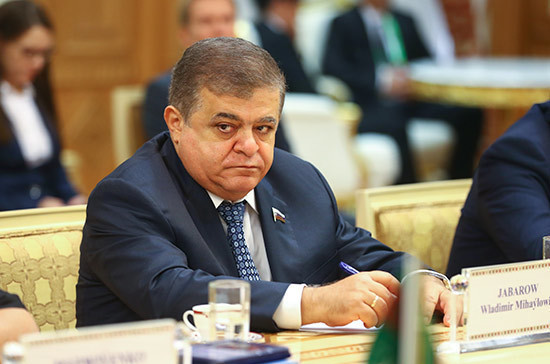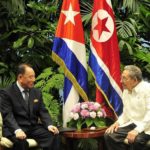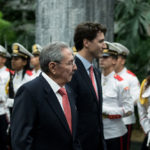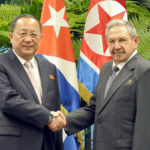
Russia offers to mediate in U.S.-North Korea rift; Cuba already has
Russia is ready to mediate in the negotiations between the United States and the Democratic People’s Republic of Korea, the first deputy chairman of the Senate Committee on Foreign Affairs, Vladimir Dzhabarov (shown in photo at top), said Friday [Dec. 15], according to the Russian Parliamentary Gazette.
The senator said that official Moscow will make every effort to convince Pyongyang of the need to sit down at the negotiating table to resolve the crisis situation on the Korean peninsula.
“Russia is ready to offer such assistance to the US and act as a mediator in the negotiations for the sake of preserving peace. For this we are ready to take concrete, real steps,” Dzhabarov said.
“North Korea needs certain conditions to initiate negotiations with the United States, including that Washington stops doing military exercises near the Korean peninsula,” Dzhabarov said, adding that the government of President Kim Jong Un demands “written guarantees” to that effect.
Also on Friday, the news media reported that President Donald Trump said that he welcomed assistance from Russia in defusing the tension created by North Korea’s recent missile tests.
President Vladimir Putin’s press secretary, Dmitri Peskov, said that both presidents spoke on the phone on Dec. 14 and agreed to exchange data and come up with initiatives to resolve the situation.
Russia is not the first nation to announce its willingness to keep the peace between Washington and Pyongyang. Last month, on Nov. 24, Cuba’s president, Raúl Castro, and Foreign Minister Bruno Rodríguez met in Havana with the North Korean foreign minister, Ri Yong Ho, to consider that same possibility.
Referring to actions by President Trump that hindered U.S.-Cuba relations, Ri and Rodriguez denounced U.S. “unilateral and arbitrary lists and designations” that led to “coercive measures contrary to international law.”
The ministers called for “respect for peoples’ sovereignty” and the “peaceful settlement of disputes,” according to a Cuban ministry statement.
Cuba has maintained close diplomatic ties with North Korea since 1960 but is opposed to the proliferation of nuclear weapons. North Korea and Cuba are the last countries in the world to maintain Soviet-style command economies. Cuba maintains an embassy in Pyongyang.
Canadian Prime Minister Justin Trudeau said on Nov. 23 that he discussed with President Castro the possibility of working together to reduce the global tensions on the Korean peninsula.
At a meeting with reporters, Trudeau hinted that he and Castro might be able to “pass along messages through surprising conduits.” […] “It was a topic of conversation when I met with President Raúl Castro last year,” he said.
Private negotiations between governments are usually called “back-door diplomacy” or “back-channel diplomacy.”




